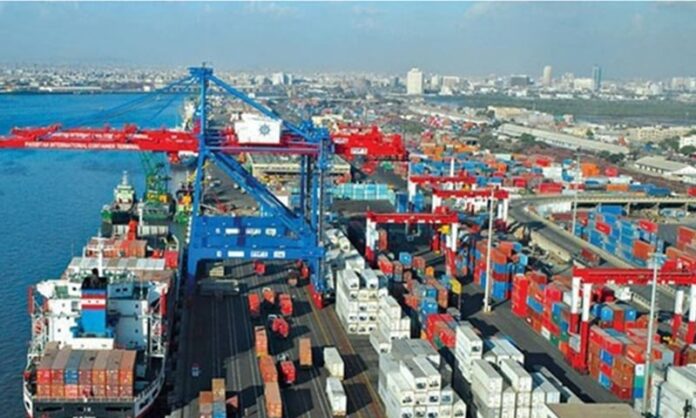LAHORE: Textile exporters fear zero sales turnover as all international markets, including the European Union and the United States, have closed port operations in wake of the coronavirus outbreak.
In line with the rest of the world, many textile industries across the country have also halted their operations either completely or partially, sources told Pakistan Today on Saturday.
Talking to this scribe, All Pakistan Textile Mills Association (APTMA) Punjab Vice-Chairman Aamir Sheikh said, “The government must understand that our sales revenues have almost gone to zero and we cannot run without a cash injection.”
He disclosed that the overseas buyers have stopped giving export orders to all markets for up to a period of three months. Any export package at this stage is as good as useless, he added.
“What we need now is a package that keeps the industry alive; liquidity is ensured so that unemployment and layoffs could be avoided,” he said. “We also want payments of all loans, interests, taxes and govt levies to be deferred, zero-rating to be resorted and pending refunds released.”
Agreeing with Sheikh, APTMA Punjab Senior Vice Chairman Abdul Rahim Nasir said some textile exporters have closed their operations for three to five days to get a clear picture of the scenario.
“Most of them have gone below 50pc [capacity] just to keep the factory in working condition,” Nasir said. “What need a package that resolve our cash flow issues.”
Nasir demanded that the minimum tax (turnover tax) must be reduced to zero per cent (completely waived off) till June 30 as presently it is applicable even if the companies are making losses. He further said that Export Refinance Facility (ERF) limits should be increased and payments of interest should be extended beyond June 30.
Nasir further demanded that the government must ensure sales tax and drawback on local taxes and levies (DLTL) payments to industry within two weeks.
Talking to this scribe, APTMA Group Leader Gohar Ijaz noted that out of the total $14 billion textile exports, $10 billion is subject to 12.5pc interest rate.
“As there will be no exports for the next three to six months due to the closure of international ports, The textile sector won’t be able to survive unless the government announces a moratorium on interest and repayments for the entire textile chain and manufacturing sector.”
Naveed Gulzar, a textile miller from Faisalabad, said unfortunately, textile exporters’ sales revenue is likely to go to zero in the next week or so. Gulzar said in the value chain there are indirect exporters who feed raw materials to direct exporters such as spinning mills.
“These mills have to borrow at normal bank rate, which is kibor plus bank margin, and their markup cost is 16pc. When direct exporters will be suspending their productions, the hardest hit will be on indirect exporters,” he said.
The textile millers demanded that the State Bank of Pakistan (SBP) should immediately reduce mark-up of indirect exporters close to the rate of ERF and the government should extend date for filing the income tax and sales tax to at least 60 days.
Gulzar said that if the government wants that the wheel of industry keeps on moving, it should also defer the payments of local taxes such as Employees Old-Age Benefits Institution (EOBI) social security for three months.
“Without extending the date of filing sales tax returns by at least two months and immediately issuing notification regarding the provision of electricity at 7.5cents per Kwh (all-inclusive) to export sectors, issues cannot be resolved,” he said. “If decisions are not taken on time, it may lead to even bigger crisis.”
Gulzar said that the textile sector realises its social responsibility and APTMA Faisalabad chapter will be assisting local administration in providing protective gear to hospital staff and will assist them in testing suspected patients.
“It will also provide food to people who would be jobless due to this pandemic.”

























[…] post Textile exporters fear ‘severe liquidity crisis’ amid global port closures appeared first on Profit by Pakistan […]